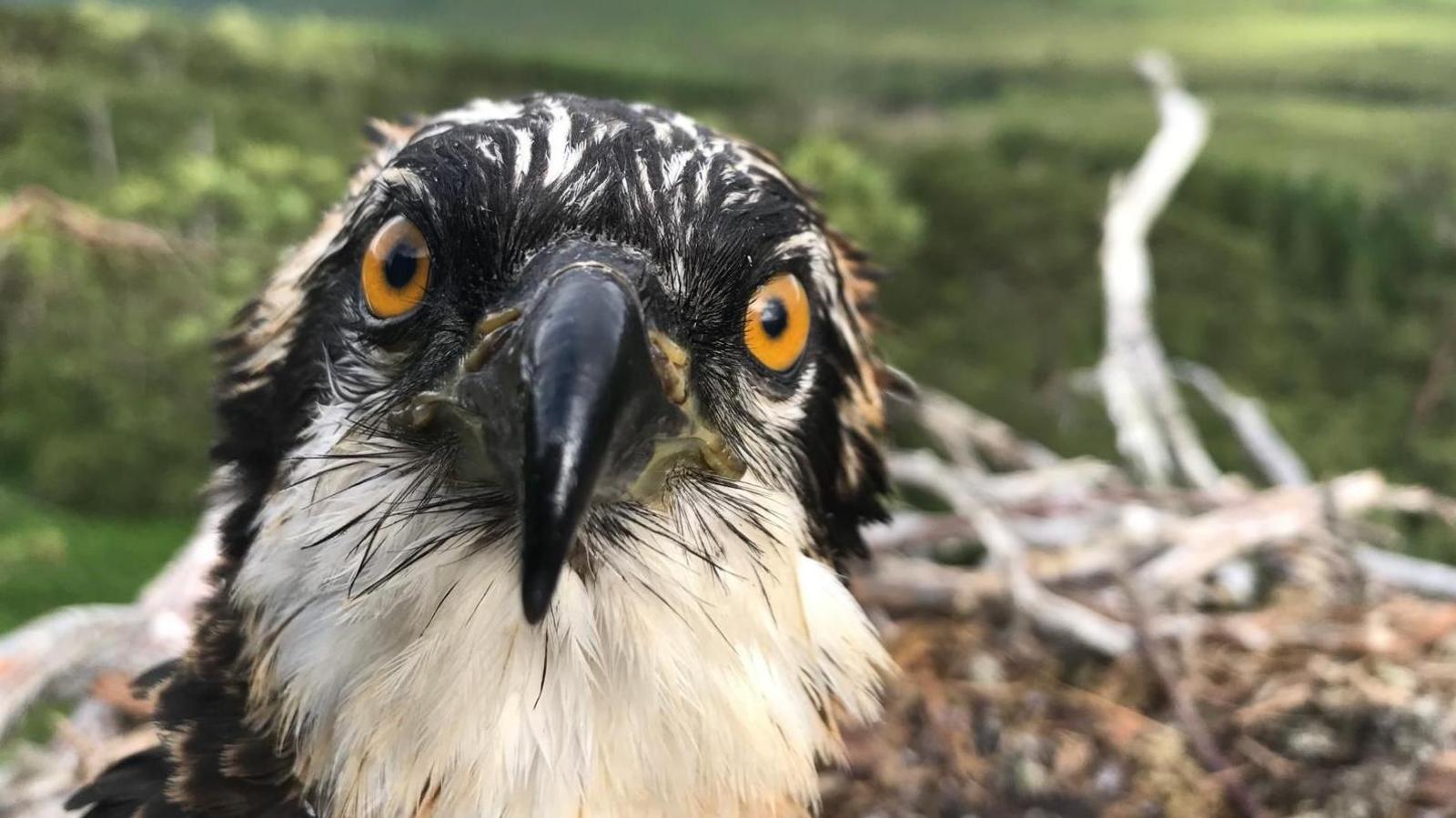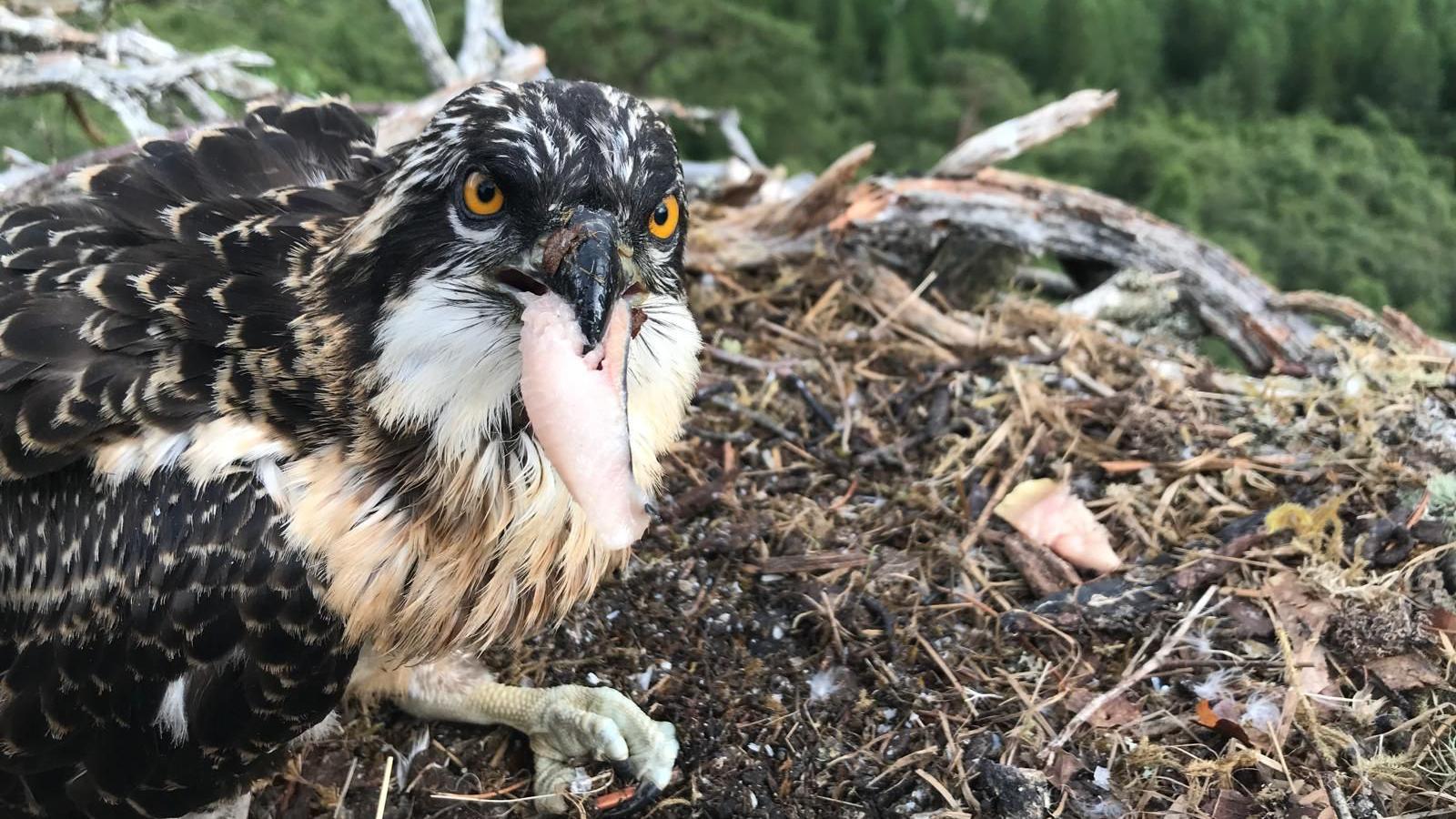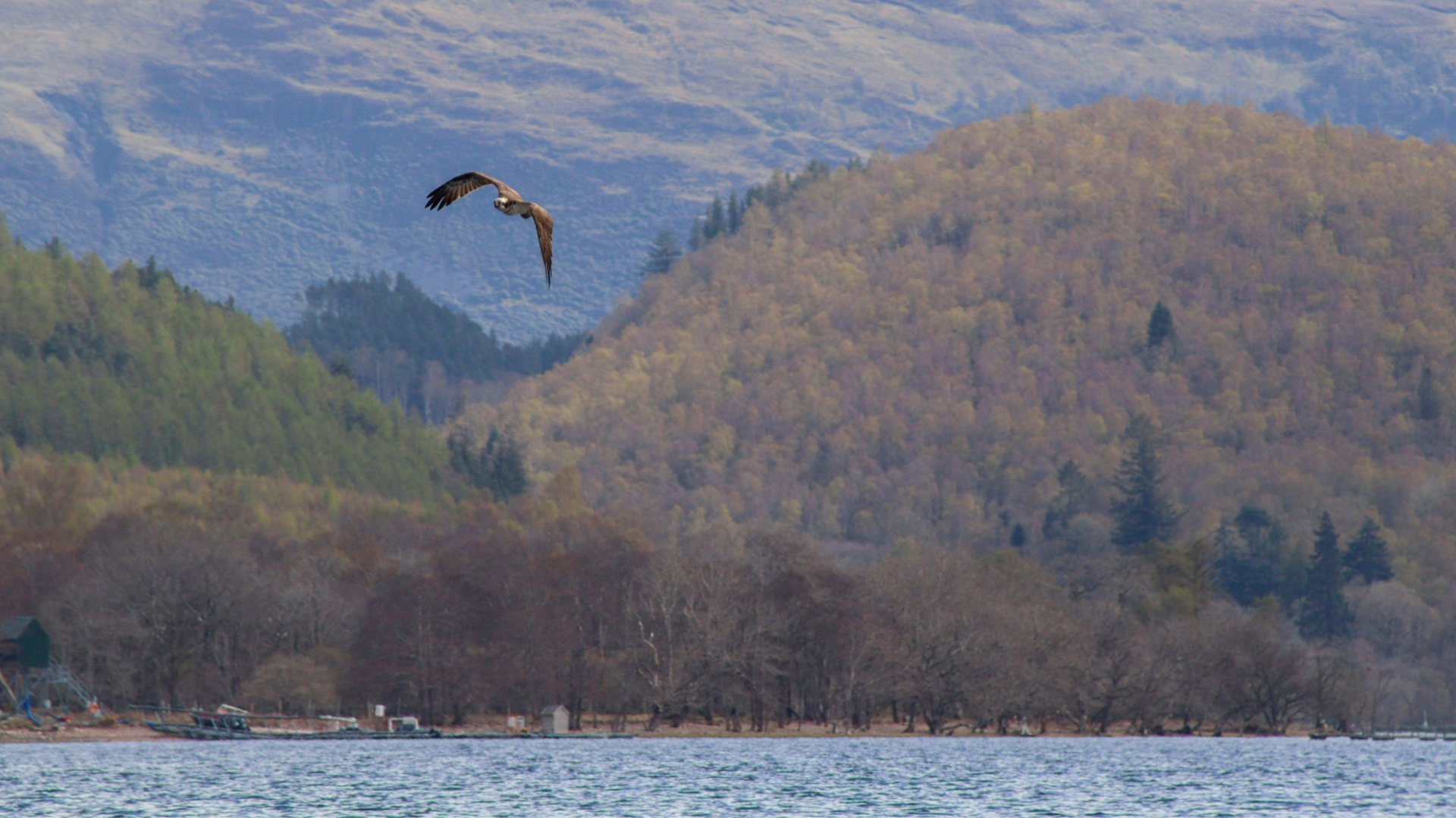Osprey chicks relocated to Spain over food concerns

Experts were concerned about the level of food returning to the nest
- Published
Two osprey chicks are to be rehomed in Spain after concerns over their father’s hunting performance.
Wildlife experts are worried the Loch Arkaig-based chicks are struggling for food following reduced fish catches by dad Louis in recent weeks.
They believe the raptor, who became an online hit through the Woodland Trust Scotland’s wildlife webcam, may be ill or suffering age-related effects.
The six-week-old birds will now be relocated from the forest, near Lochaber, to the Valencian region as part of a reintroduction programme.
Osprey chicks named Dame Vera, Capt Tom and Doddie
- Published13 July 2020
Lochaber osprey killed by power line
- Published21 January 2019
Woodland Trust spokesperson, George Anderson, said Louis had been “off his game” in recent weeks, bringing in very few fish to feed the chicks.
Mr Anderson said the bird, who has been the star of the webcam since 2017, would normally be bringing catches of four or five every day.
The Trust said it would never interfere with the ospreys’ daily lives in normal circumstances.
But Mr Anderson said it would be “needless” to let the chicks die from starvation when a relocation option was available.

The chicks were taken from the nest on Monday
He said: “Louis has always been a very dependable provider, but he has been off his game lately.
“Bad weather is likely part of the problem and lots of nests appear to have had a poor year, but we think there is something not right about Louis.
“We waited to see if Louis’ performance would pick up but it hasn’t and, while it is our default position not to intervene, we think it would be needlessly dogmatic to let the chicks die when the option to relocate them is available.”
Louis and his 2020 cohort of chicks with previous mate Alia became a huge online hit during Covid lockdown.
They were named Dame Vera, Captain Tom and Doddie in honour of singer, Dame Vera Lynn, charity fundraiser, Captain Sir Tom Moore and rugby star and MND campaigner Doddie Weir following a public ballot.
Alia failed to return from migration in 2021, but Louis found a new mate, named Dorcha.
The pair hatched three chicks earlier this year, two of which survived.

Louis was pictured fishing on Loch Arkaig earlier this summer
The Trust is now working with the Roy Dennis Wildlife Foundation as part of the project to introduce the birds to the eastern part of Spain.
The project is based in the Pego-Oliva Marsh Natural Park, near the town of Playa Santa Ana.
It is hoped the scheme, which is in its second of five years, can help restore the species to the region – where they became extinct in the 1980s.
Mr Anderson said: “We have every confidence that while the chicks’ survival is not guaranteed, they will have a vastly better chance.
“It will take the pressure off the adult birds, who will now only need to feed themselves and can hopefully get back in condition before migration and will contribute to an excellent conservation initiative expanding the range of the species to make it more resilient in the future.”
He added: “Scotland has reintroduced species such as beaver, red kite and sea eagle thanks to other nations gifting us their animals.
“I think it is great that Scotland is giving this gift to Spain and we are proud this Arkaig pair are going to be a part of that.”